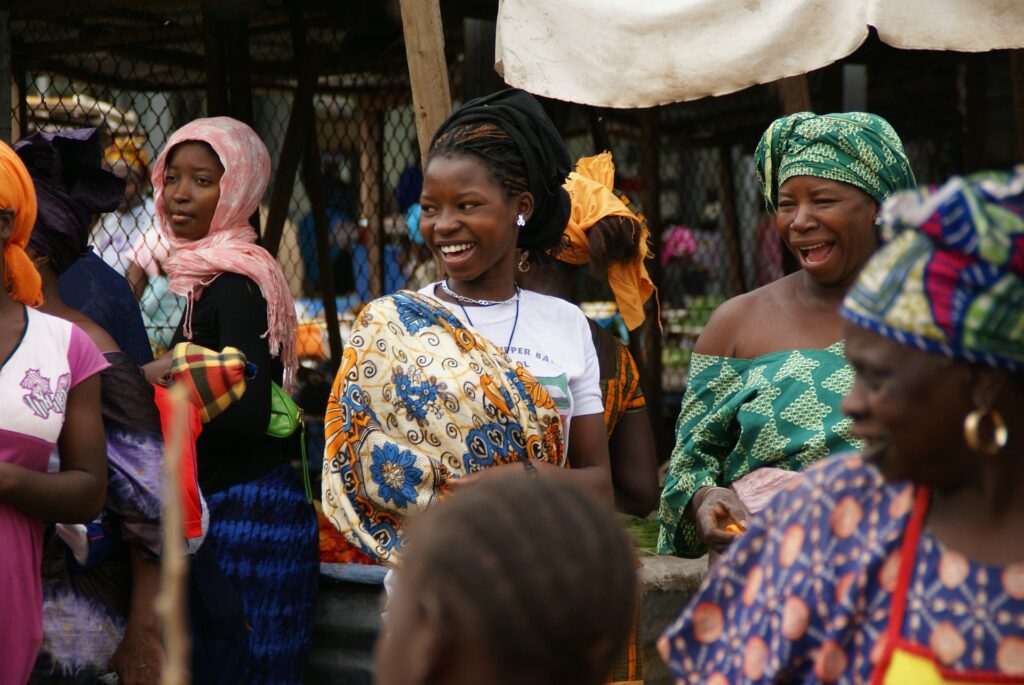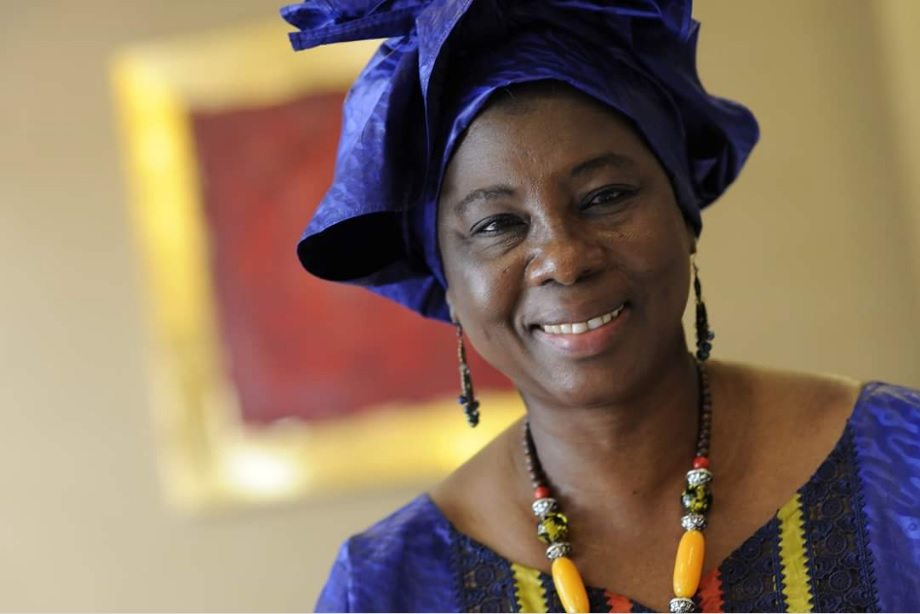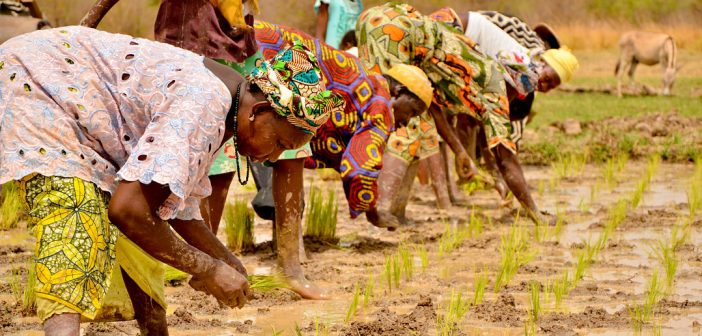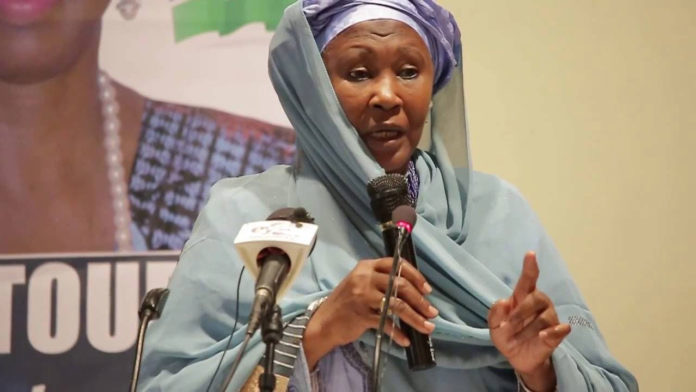To commemorate International Women’s Day ( I dedicate this opinion piece to my daughter, nieces, and sisters).
When you put women in charge of the kitchen, the living room, or “the other room,” they get the job done without whining as men often do. When their opponents “go low, they go high.”

Gambians must celebrate and acknowledge those women who have braved political life rigours to make it to elected positions and all those participating in the Gambia’s electoral politics.
To every ‘Boychild’ and men of shattered masculinity reading this post, I would like to urge you to think of your daughter and the Gambia whether you would like her to grow up in patriarchalism and arrogance of paternalism that underlies cradle-to grave political economy of gender inequality construct.
If she has political dreams, would you want her to be curtailed due to women politicians’ cultural biases and views against women in politics?
This is also about the girlchild and women what good and evil they can do to the world. There is something magically positive about women. They would instead charm than be charmed. They do not succumb to any malleus maleficarium. No cursed palace can mute their determined voice. When they have to shout, they shout.
If tears are what is needed to get the job done, they shed emotional tears. They are like the old bank, robust and reliable. When you put them in charge of the kitchen, the living room, or “the other room,” they get the job done without whining as men often do. When their opponents “go low, they go high.”
It was three months ago, and the world witnessed the making of history in the United States. A historic pall of gain and win most certainly fell on the men and the Boychild’s arrogant earth after the November 3 presidential election in the United States. With Kamala Harris making history as the first Black female Vice President of America, Angela Merkel as German Chancellor, Speaker Nancy Pelosi, Treasury Secretary Janet Yellen, Prime Minister Sheikh Hasina Wazen of Bangladesh, President Bidhya Devi Bhandari of Nepal, President Sahle Work Zewde of Ethiopia and Jacinda Ardern as Prime Minister of New Zealand, the world is clearly at the threshold a revolution.
Maybe the one effective way (away from putative superstition) to save humanity, especially the Gambia, from today’s decay and certain death is to dethrone the patriarchal political elite misruling and spreading misery everywhere. Maybe putting good women in charge is that one way of halting the drift down the abyss. Maybe.
We know women could be tender and chewy at all times. That is why at old age, fathers value their caring daughters, and mothers feel no pains even when they have their fingers in the fires of life. We remember Agnes Bojaxhiu, whose exemplary tender-heartedness and godliness in looking after the sick, the rejected, the orphaned, changed her name to Mother Teresa?
Black Americans will always remember Rosa Parks, whose positive stubbornness and consequences marked a turning point in the civil rights movement in the United States.
We all remember that the consequences of Parks’ 1955 refusal to give up her bus seat to a white man have remained a metaphor for what happens when you refuse to do business safely as others do it.
We will continue to ask if there would have been a President Barrack Obama with a black First Lady in the White House without a Rosa Parks? Now, with so many influential people everywhere demanding life-taking sacrifices from the poor, don’t we need a Rosa Parks in Nigeria to tell off such impudent forces holding on to unearned privileges at our collective expense?
Again, can we remember a woman called Marie Curie, the first woman to win a Nobel Prize in two areas? She lived between 1867 and 1934, also an unusual fighter — in the sciences — and the owner of the word “radioactivity.” We need her around now to further suggest (as she did to her age) how to use radiation to cure cancer eating through the Gambia body.
And, out of the sphere of marriage to the public space, women throughout history have proven to be better problem solvers. Their self-immolating content-capacities are the reasons cities stand and men rule.
In our chapter on history and myth, you remember. Aline Sitoe Diatta ( 1920 – 1944) was a Senegalese heroine of the opposition to the French colonial empire, a potent young female symbol of resistance and liberty and the permanence of her place in history doing what men could not do to free her people.
Coming closer in time, there was In the 19th century, the Wolof queens Ndaté Yalla and her sister Ndjeumbeut Mbodj stood out as two of the most powerful women of 19th century Senegambian dynastic history, whose knowledge of how to handle men summarily, permanently cut off obnoxious tax nooses around feminine necks. Every household and every community has a history of such women.
Furthermore, of course, now, you would ask, what about women who set ablaze humanity in fits of rage and greed?
Fatoumatta: I know you would go even into the same history and fish out some notorious ones like Yadicone.
I know you would move nearer home and name women in our recent history whose farts in the family soup have put shame itself into shame. You would be right. Scoring a hundred percent in matters of character is reserved for angels. I have not said women are angels.
Indeed, I have not heard of one. Even then, in the Yadicone story, have you bothered to look beyond the fiction into the real account? Was she not a victim. Of power wielded by men who were ever suspicious of ascendant women?
Read her story, please, and the story of all women divorced by society and thrown out, skirt, blouse, wrapper, all, out of the room of honour by men and the power they wield.
You know women could be tender and chewy at all times. That is why at old age, fathers value their caring daughters, and mothers feel no pains even when they have their fingers in the fires of life.
I believed and support the idea of gender top-up seats for Gambian women’s leadership and political participation, improving women’s representation in politics, top public policy positions through gender quotas or electives to come to the new Gambia and other developing countries.
Thus, seeing many women in political leadership will change our conscience system and political consciousness. Having women public intellectuals, politicians, and professionals and serving in public policy decision-making and the board room will become a norm.
Some things are uncomfortable, and there is a price to pay in democracy and shared citizenship. However, they have to be done for the greater good in the principles of benevolence.
Until 100 years ago, women in the United States were not allowed to vote. Moreover, up to the 1970s, there were still many cases of gender discrimination in the country.
However, this is what they call the free world. You can imagine what was happening in the rest of the world.
I recently read a novel titled ‘The Duchess’, which is the 19th Century England.
The main character, a duke’s daughter, suffers heartbreaking experiences after the father dies. The brother inherits everything since women have no right to inherit a single thing and are left at their male siblings’ mercy.
In 2013, women won a record 64% of seats in Rwanda’s parliamentary elections. Rwanda remains the world’s top country for women in politics. As American and international media celebrate the fact that a record number of women took the congressional oath of office in Washington DC in 2016 and 2021, comprising 19.6 percent of the 535 members in the United States Congress, 20 women ( 20 percent) serve in the United States Senate, and 85 women ( 19.5 percent) fill in the United States House of Representatives.
Congratulations to the United States for electing the first black woman Vice President and twice a Speaker of the House of Representatives. The United States of America is still far behind Rwanda’s lead and example. However, the Americans should not rest on their oars.
They are still decades away from coming close to this African example of gender equity and political representation. The Americans should rest assured that Rwanda will continue to offer them leadership and guidance to deepen their efforts towards more female models in Washington.
In Africa, as in the Gambia, too, until the other day, women had no right to inherit from their parents. In some other communities, until recently, women were not allowed to own property. It has almost been taboo for a woman to go for a political seat in those very communities.
Women who have political ambitions have been seen as immoral and insubordinate because they should never want to lead; they should be directed. These are the same communities where early/forced child marriages and FGM are prevalent because a girl should only exist to serve her husband and give birth.
As we well know, until the introduction of the representative woman position, some of these regions have never elected a woman parliamentarian. Women joining politics has been a detestable idea.
This bias against women, which stems from certain cultural beliefs, has been so engrained in Africa that it has become a conscience system.

Unfortunately, many people, both men, and women still abide by that primitive belief and approach. This makes it very hard for women seeking political seats as they undergo many hurdles and obstacles, including blackmailing, violence, ridicule, and all manner of sexual insults.
Ours is a society that mainly believes (though silently) that women should be very far removed from political leadership. So how dare they even attempt?
Have we ever heard a man say he cannot be with a woman in politics or a more powerful woman or earning more money than him? This is yet another challenge that makes many women shy away from politics because they do not want to be looked at in a certain way and fear losing a family.

Despite these glaring challenges and biases, we will still find men in these streets saying that women should compete with them and win as many seats just like them.
Against the background painted above, after years of discrimination against women due to cultural beliefs, we are supposed to achieve this equality when we are stuck against so many odds, from financial challenges. Many women do not own property in various cultural biases.
Do we know you know how many women representatives and other women Parliamentarians have been elected or have achieved for The Gambia? For the longest time, over 90% of our MPs have been men.
Women are still more than half the population, yet Gambian women have only less representation than fifty-three members, only two women elected, and three nominated parliamentarians. This National Assembly is the only assembly in the world in which men severely outnumbered women.
The National Assembly comprises 53 members, with 48 members being directly elected from electoral districts for a five-year term and five appointed by the President.Out of 58 seats, they were resulting in a 10.3% in female representation. There has been a slight increase in political representation from 2012 where four women held seats in the National Assembly.
Even though the regional rate of women’s representation in sub-Saharan Africa is 23%, women’s representation in the Gambia remains low.
At one point, they had 100% of the seats in the House. What has most of those male MPs achieved for this country? Or is the standard only set for women, where they are all generalized as non-performers?
There has been an issue regarding the quality of women that have been nominated to the National Assembly. While some have done a splendid job and even went ahead to get into public office afterward, a few have failed us, just like some male nominated Parliamentarians have been unable the Gambia.
In rebuilding our nation, we should make a conscious decision to put inclusiveness and equality at the heart of the reform, reconstruction, and restructuring process.
The quota system in Rwanda has helped to speed up women’s participation in politics. Women have proved that they can make a positive difference in peoples’ lives.
Women in the world perform 66% of the world’s work, produce 50% of the food, but earn only 10% of the income and own only 1% of the property.
More female elected officials in Rwanda than men, with 64% of parliamentary seats held by women. This is partly due to using a quota system to increase the number of women in parliament.

The constitution written in 2003 states that Rwanda commits itself to grant women “at least 30% of posts in decision-making organs”. That same year, women won 48.8% of seats in the Lower House of parliament.
Rwanda’s success in increasing the number of seats held by women in its parliament displays the efficacy of using quota systems and shows how beneficial they can be in getting women’s voices heard and considered when discussing national affairs.
Women groups and civil society groups should sponsor a private members bill to be put forward to the National Assembly to introduce a quota system for female representation in the National Assembly like Rwanda, calling upon the ‘Girlchild’ to take up the demanding tasks of political physical and social and economic reconstruction of the nation, social healing, unity, and reconciliation, peacebuilding in times of political healing, justice, and governance programme.
By Alagi Yorro Jallow











Recent Comments